Egypt has recently been embroiled in political turmoil that has threatened Egypt’s stability both economically and politically. Last weekend, feeling the need to visit several tourist sites around Cairo and see what has changed in the past two years, I decided to visit the Pyramids for the first time since the January 25 2011 Revolution.
What I saw was shocking, depressing, disappointing, and very worrying. However, for the sake of optimism, I will start with the positive aspects of my trip. Click here to skip through to my eye-opening experience at the Pyramids.
Mena House Oberoi
[Update: As of January 1st, 2013 The Oberoi Group – which had been managing Mena House since 1972 – has announced that they are no longer managing Mena House]
Any Egyptian knows that before going to the Pyramids, one has to stop by the historic Mena House Oberoi. Mena House hosted Australian troops during both World War I and World War II, the first peace settlement talks between Egypt and Israel in 1977 (which led to the Camp David Agreement), and a host of historic figures such as Winston Churchill, Richard Nixon and Jimmy Carter, Charlie Chaplain, Cecil B. DeMille and many more.
The hotel has managed to retain its charm, and its interior design makes you feel like you have traveled back in time. Having a nice (albeit expensive) lunch or just coffee with the Pyramids in the background is a priceless experience.
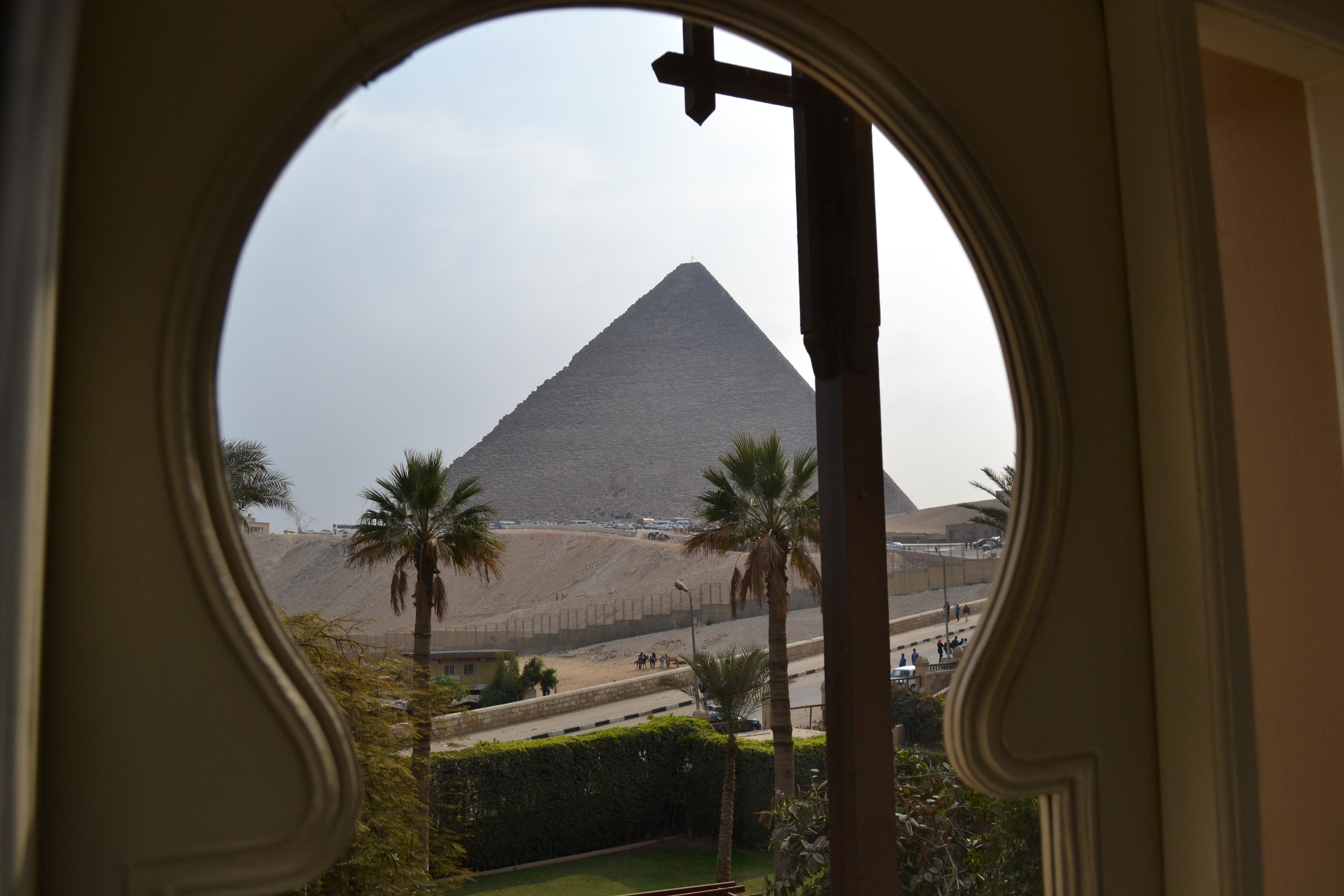
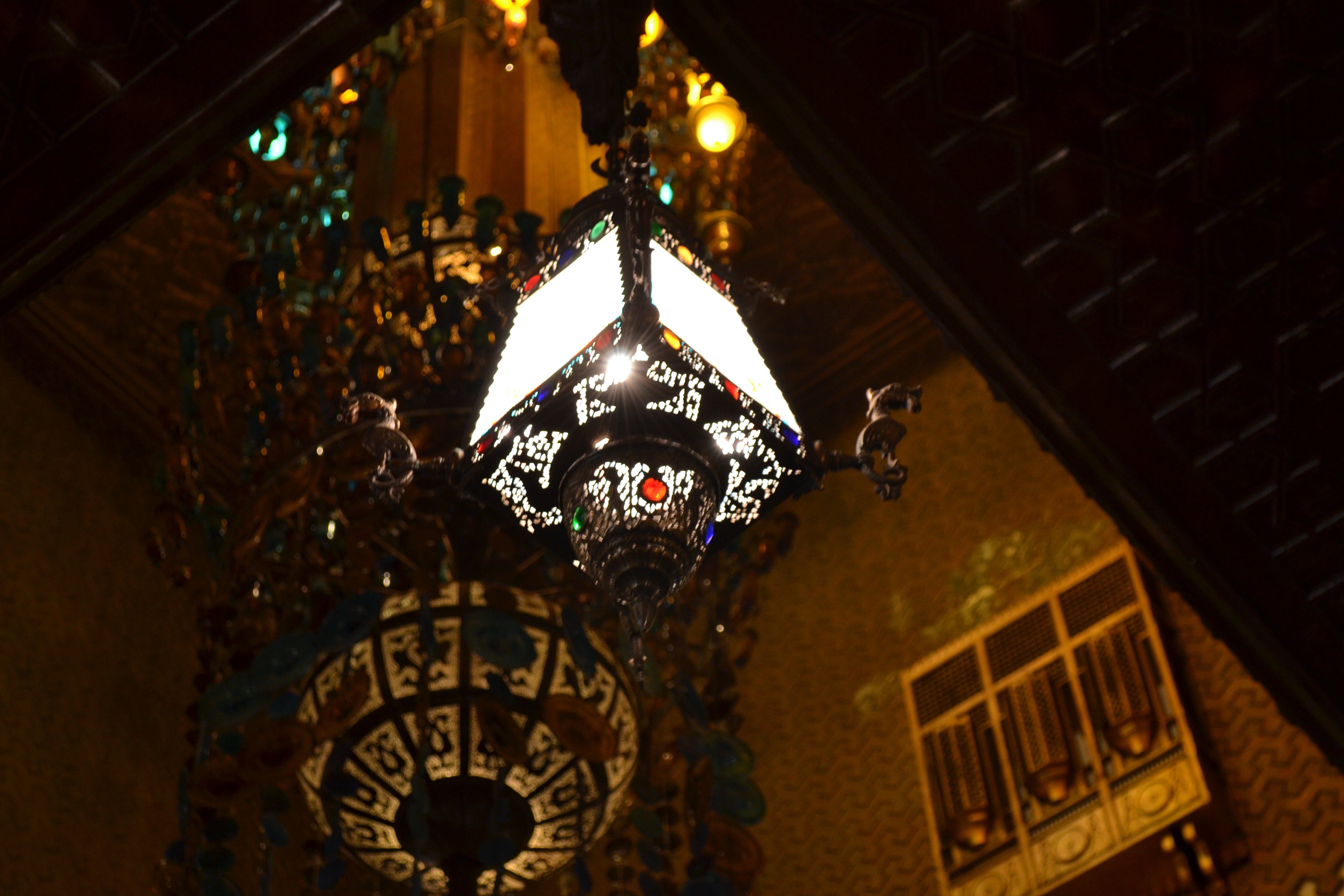
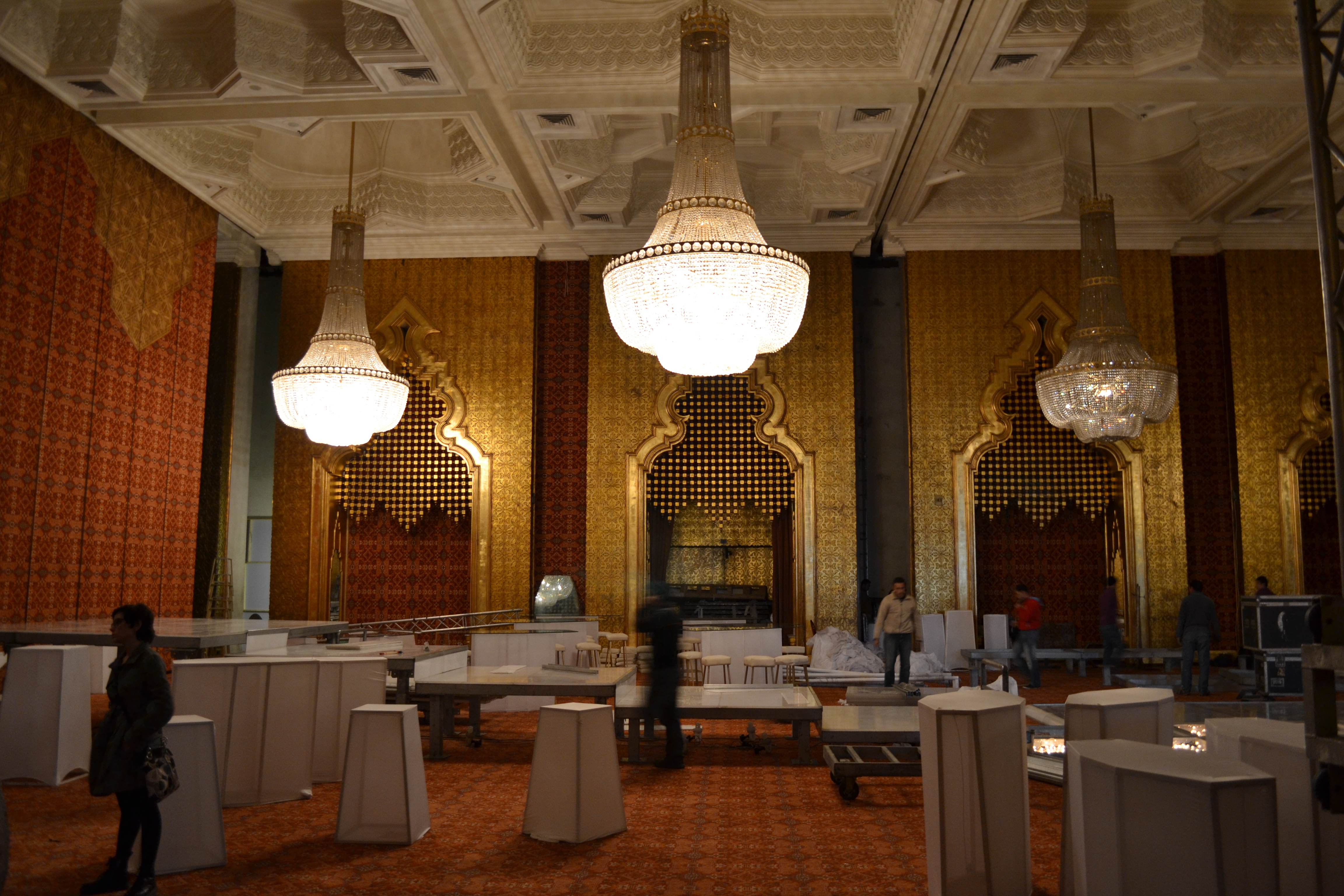
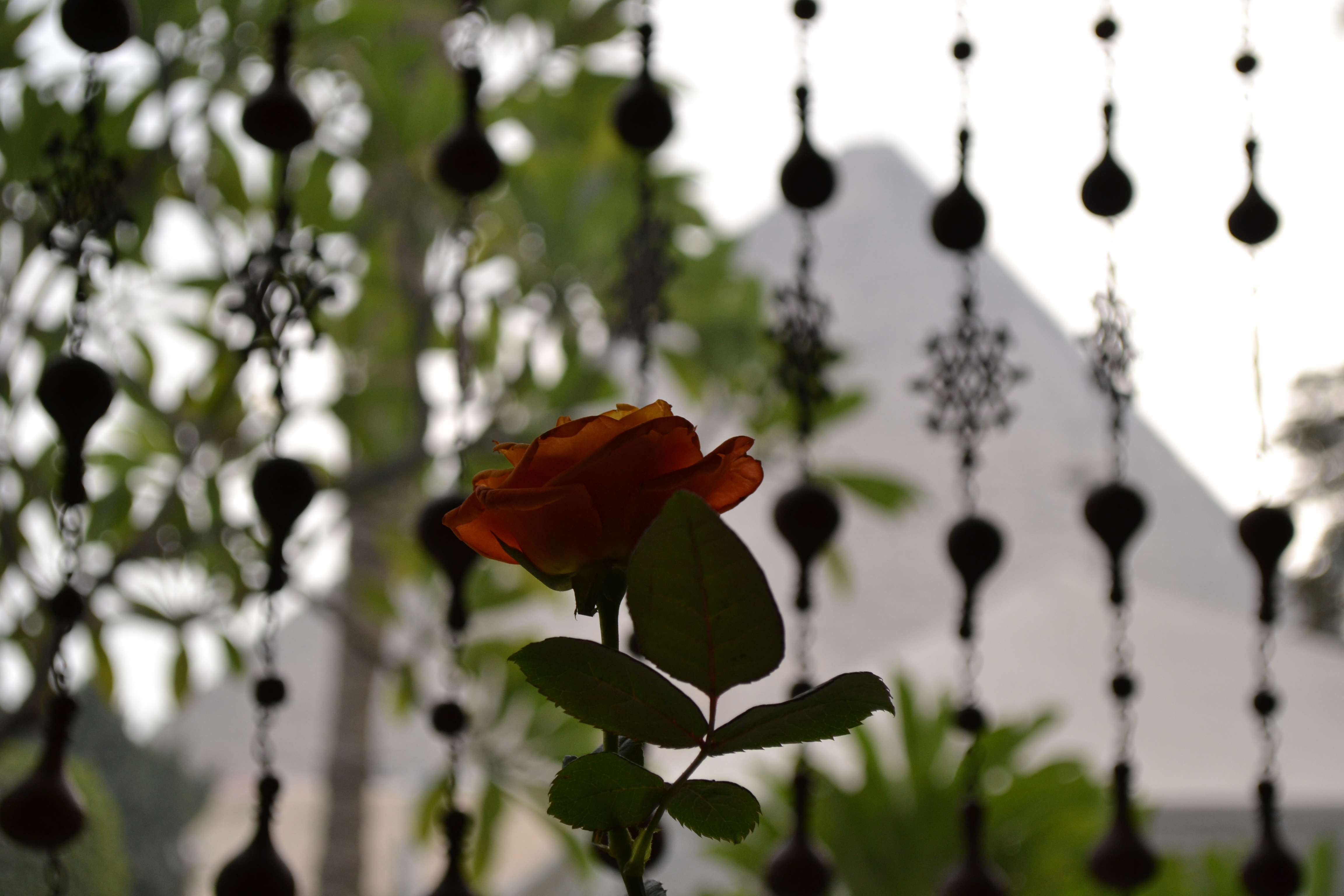
Unfortunately we were running short on time and so I could not get many more photographs from within, but if you need more convincing to visit Mena House if you’re ever in Egypt, then you should definitely check out their hotel’s website and Google images.
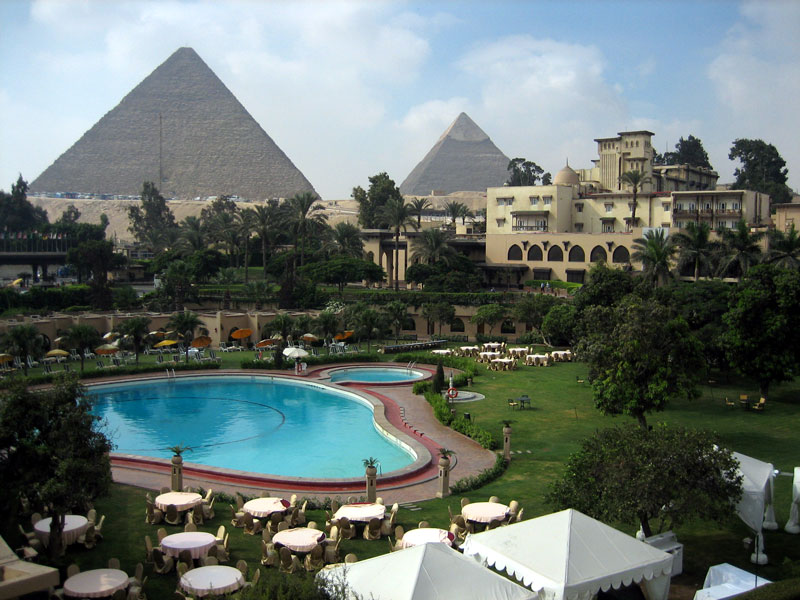
Words cannot describe how much I would recommend spending at least one or two nights (if not then simply a day) at Mena House Oberoi. It is a trip back in time that will also provide you with the luxury and comfort of modern hotels.
The Pyramids
Unfortunately, Mena House was the best part of my day-trip. I was completely unprepared for what I was about to experience next and almost wish I had simply gone home after Mena House, thus retaining a wondrous image of the Pyramids. Right outside the gates which lead to the entrance to the Pyramids a dozen of men (mainly in their early twenties) attempted to force our micro-bus to park. They stood in front of the micro-bus, banged on it, jumped on top of it, and in some cases shouted. Why? Well, they are trying to tell you that you are not allowed to visit the Pyramids with a vehicle, and instead must use one of their horse-drawn carriages (or camels). However, this is a complete lie and scam (unfortunately I witnessed a few tourists who fell for it).
What were security officers doing about this? What security officers? There is a very limited presence of security, and in most cases they do not intervene.
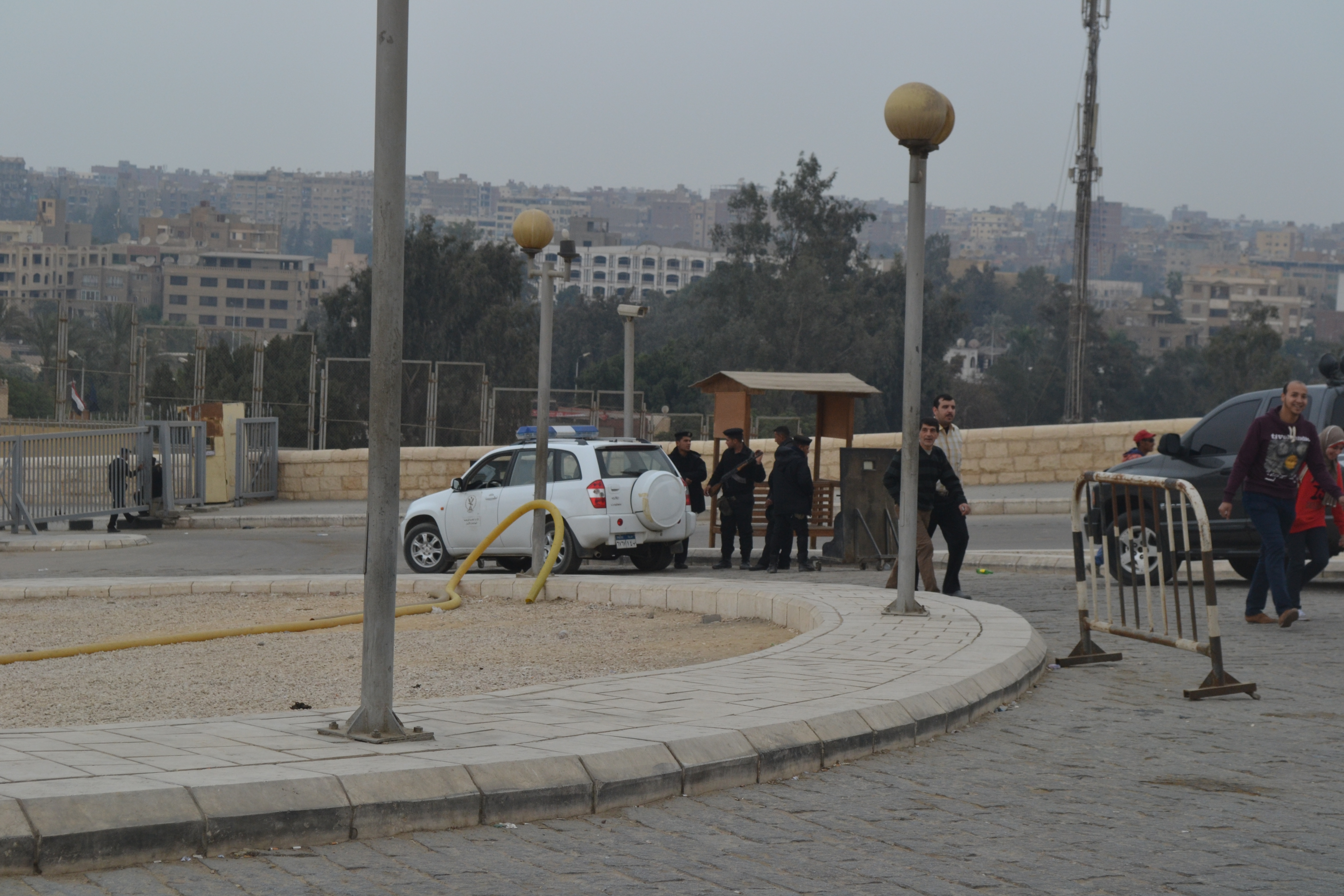
I brushed off the incident – which would probably scare any tourist – and assumed that inside the Pyramids’ complex the situation would be different. I was wrong.
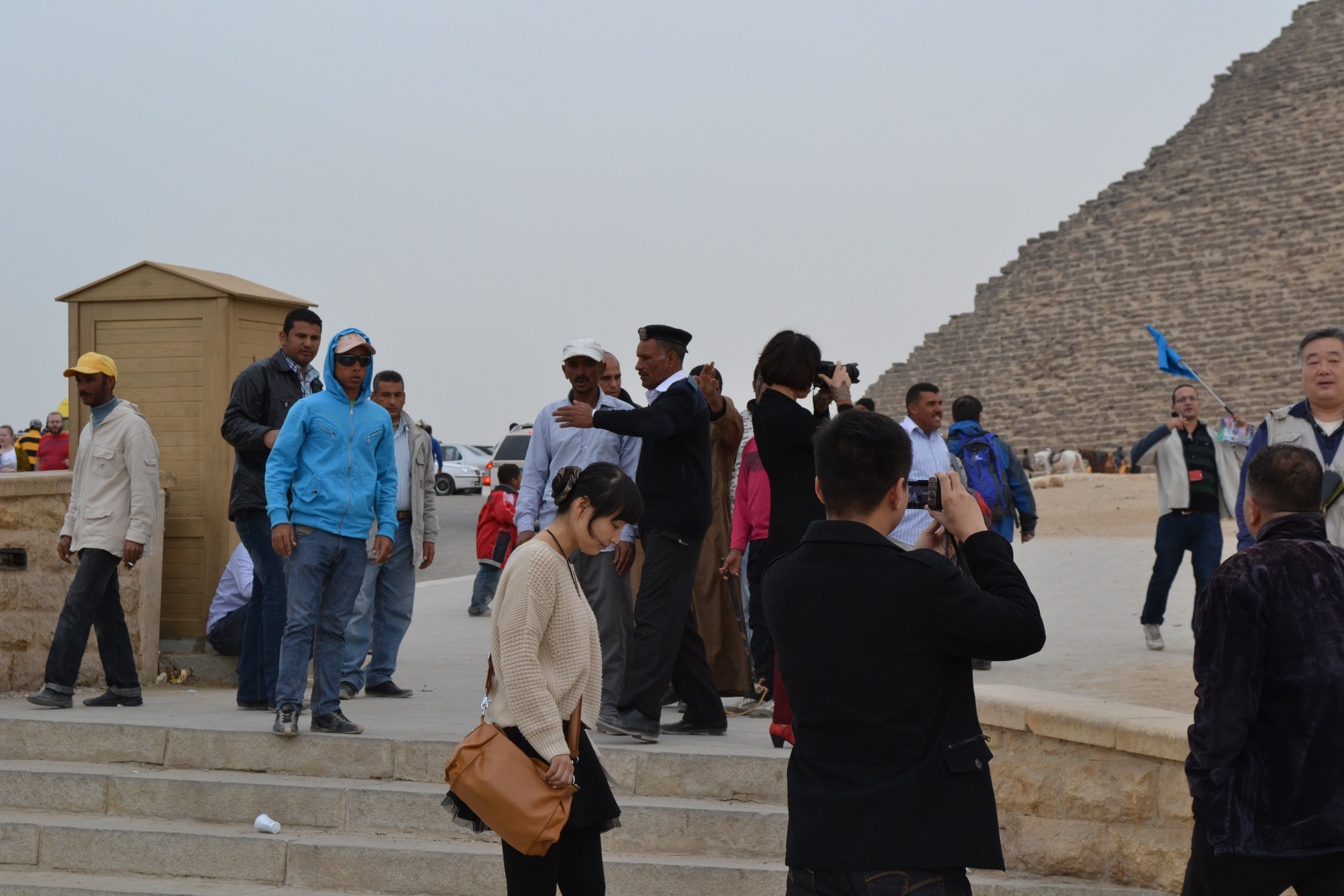
Thankfully, a security guard requested that he accompany us – a luxury that many tourists are likely to miss out on – thus keeping us safe from the constant nagging of merchants wishing to sell us little souvenirs or offering a ride on their camel.
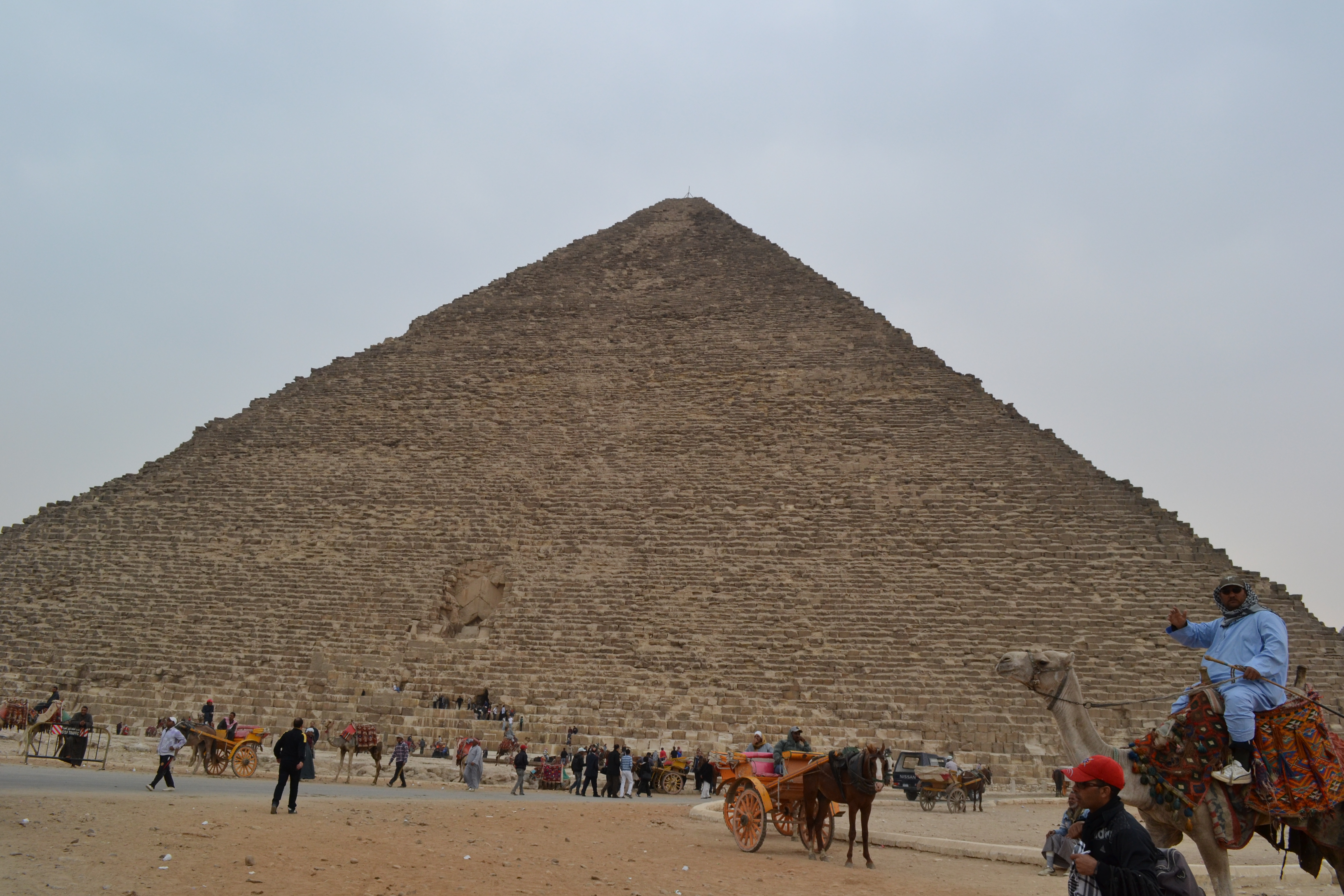
The security guard who accompanied us told us that everything changed after the revolution: the police officers no longer had any authority due to the lack of respect from the Egyptian people. The security vacuum, he told us, meant that the presence of merchants (and especially scammers and thugs) multiplied, and that many rules (such as no camels or horses allowed around the vicinity of the Pyramids) were no longer abided by: they had no control over them due to a lack of personnel and facilities.
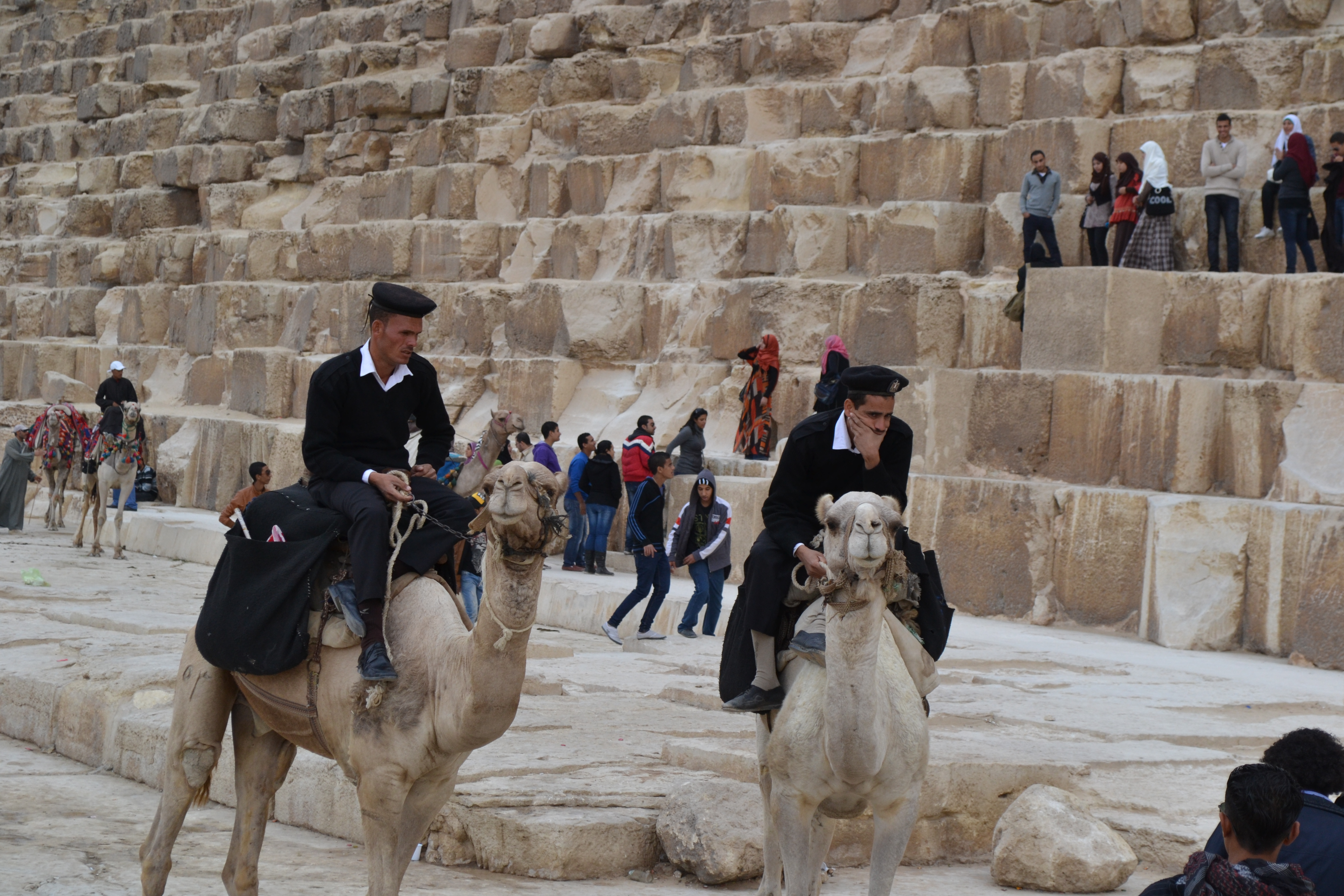
To clarify once again: the huge presence of merchants means that tourists are unable to actually enjoy their time at the Pyramids, and are instead forced to say “No thank you” every few minutes while being harassed by one of them. It also means a huge presence of horses and camels. They whiz right in front of you, causing a huge safety concern – you could get trampled accidently quite easily. Moreover, the stench of piss and shit was horrendous throughout the whole complex: camels were pissing everywhere, and shit covered the area surrounding the Great Pyramid – you had to watch every single step in order to avoid it.
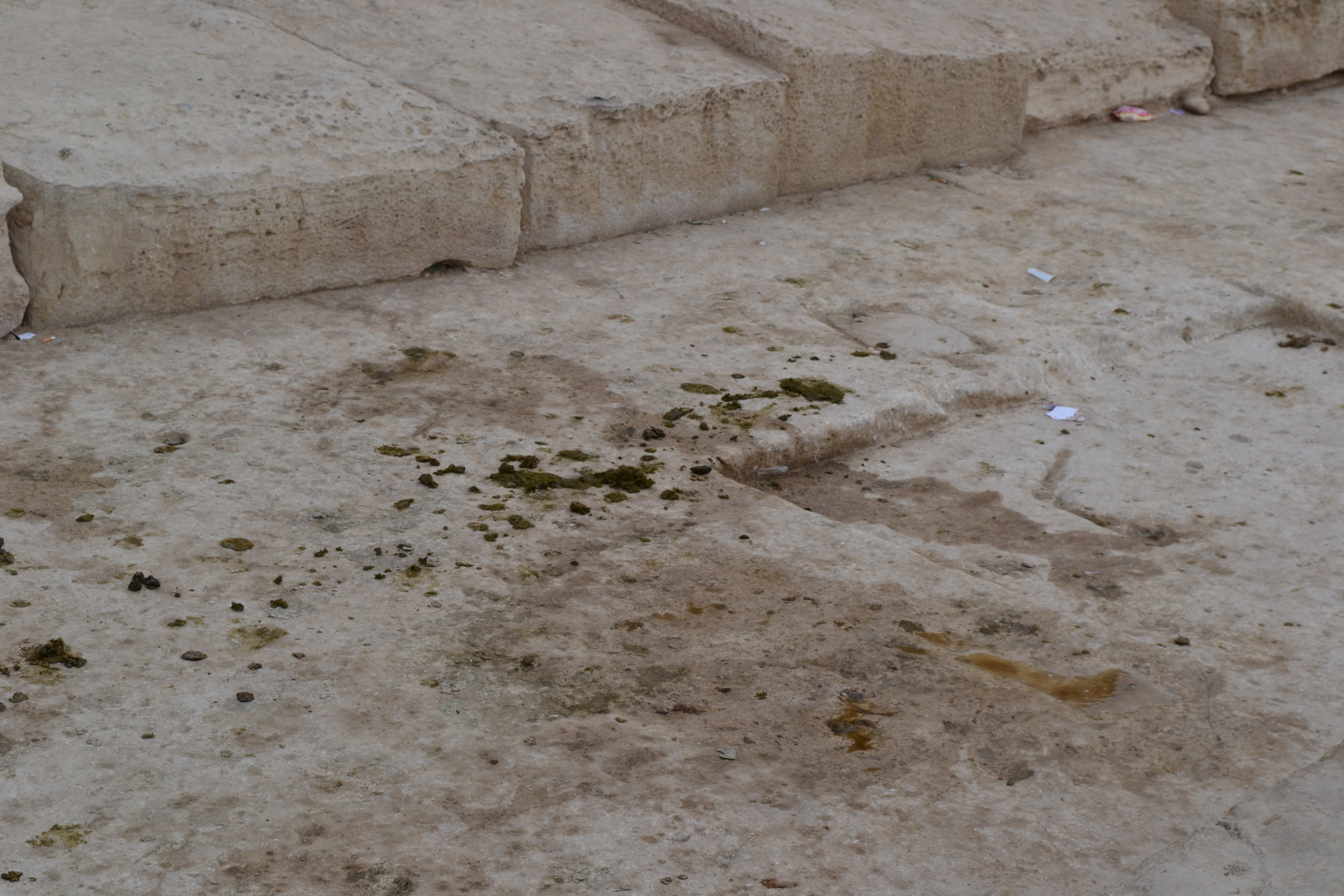
When I watched Karl Pilkington’s An Idiot Abroad: Egypt I thought he had exaggerated a bit too much when he stated, “It’s not even bits of old pyramid..you’ve got bricks here from council houses…it’s literally like people brought shit and dumped it here.” This was almost two years ago: Karl would be astonished with what I saw last weekend.
Curious as to why the situation had deteriorated so much, we spoke to some of the merchants on the scene. They said that ever since the revolution, there had been literally no tourists and no security whatsoever. This meant the increasing presence of thugs who would often threaten and intimidate them. Many were appalled at what has happened, as according to them, if the tourists aren’t happy, then they don’t make money.
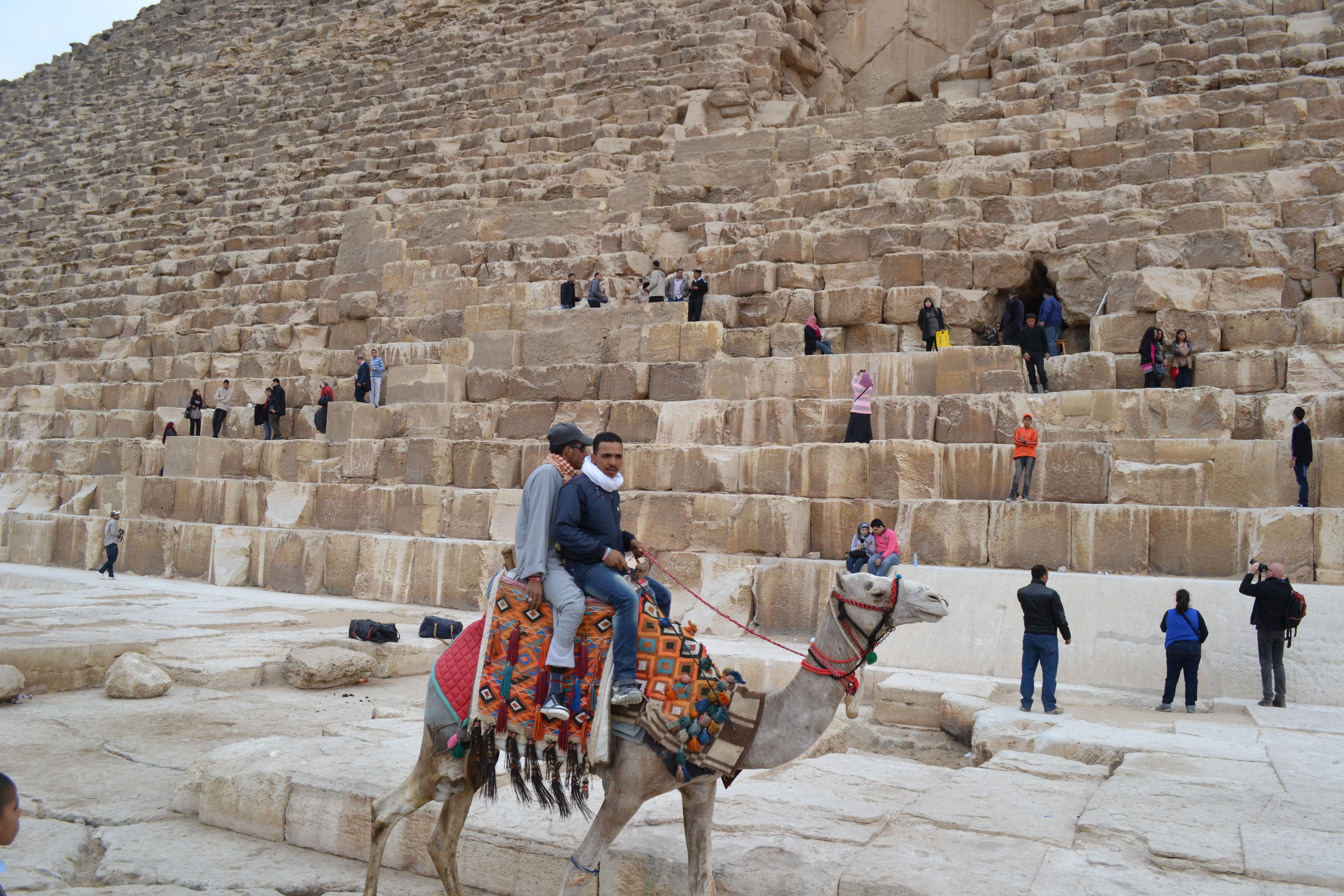
Not being able to stand the stench and due to the general shock we were all feeling, we asked the security guard to take us to the observatory. Thankfully, it was much more peaceful and relaxing up there.
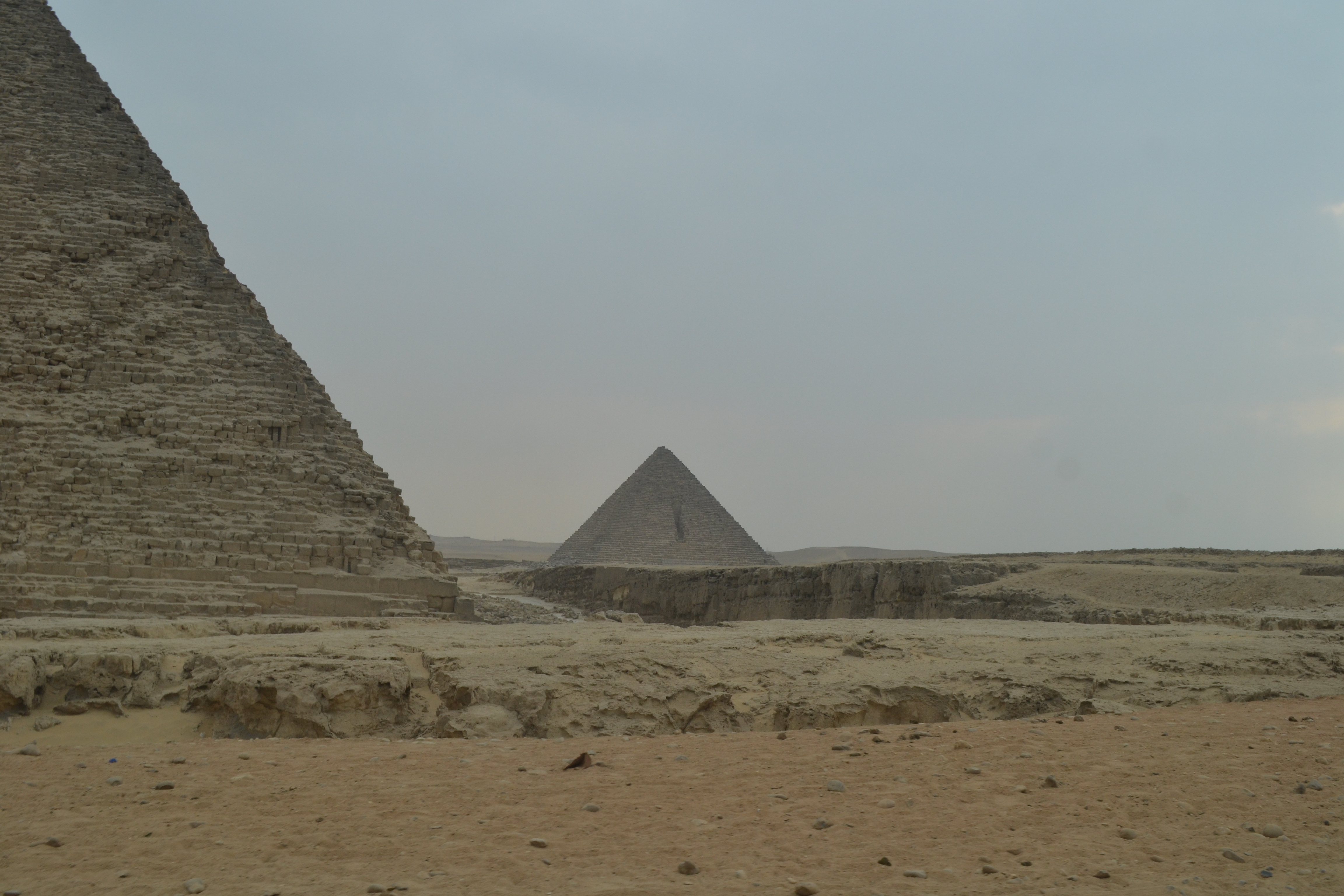
The view from the observatory is spectacular. It was here that I was really taken back by the beauty and the wonder of the Pyramids. It is also the perfect location to take photos with the pyramids – especially in large groups. Fortunately, there is also much fewer merchants here and there were only two camels present (and surprisingly, no shit at all). The security guard told us that before the revolution, you were not able to drive up to the observatory so easily as the road would be filled with tourist buses and cars taking them up there. He tells us that the lack of tourists is unprecedented in Egypt’s history. This was very noticeable: I only saw a handful of Asian tourists – the rest were all Egyptian.
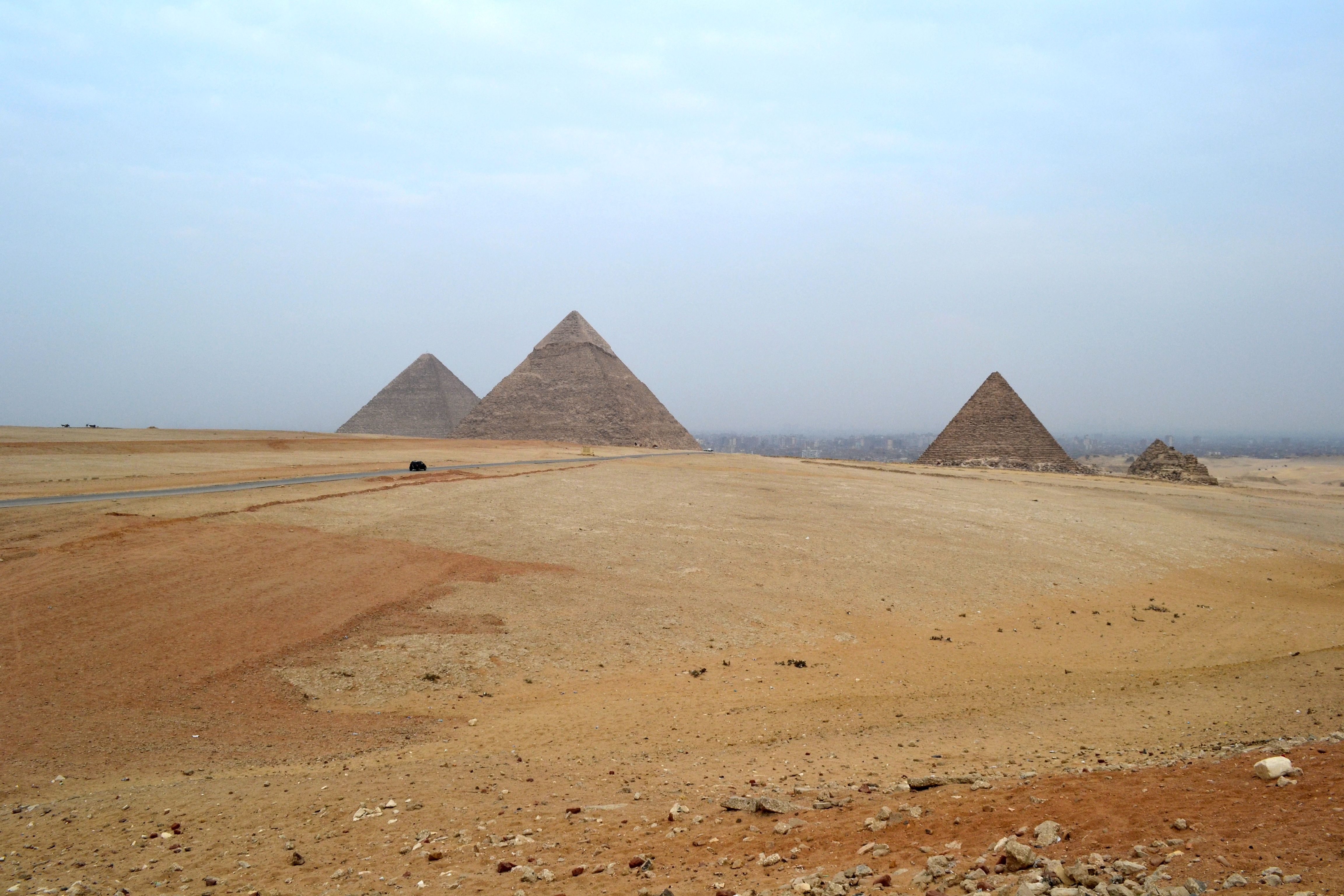
Yet, I am glad there is a lack of tourists at the moment, because until the situation at the Pyramids improves, then tourists will be appalled at how poorly maintained the complex is. Even the current Minister of Antiquities – according to the guard – was shocked and depressed upon visiting the Pyramids a week earlier.
The government has been encouraging tourism, yet are neglecting Egypt’s number-one tourist attraction. The deterioration of security, economy, and every-day life in Egypt has directly reflected on the Pyramid of Giza. The Ministries of Interior, Tourism, Antiquities and the Presidency itself are directly responsible for the maintenance of this wonder and for the significant deterioration that it has faced.
Meanwhile, the media is also responsible for remaining silent on the serious issues that occur on Egyptian streets. The media continues to focus on politics almost 24/7, while neglecting the deterioration in Egypt’s quality of service within the tourism sector – especially in such historical locations. The media continues to state “tourism has increased by (insert a magical number here)” while failing to report that there are no tourists at the Pyramids, at Khan il Khalili, or at any of Egypt’s Islamic and Christian sites (which I also visited on the same day). If the Pyramids were located in any other country, these magical numbers they tend to throw at you would be at least 10-times higher.
Perhaps more responsible are the Egyptian people themselves. I was embarrassed for each tourist who was at the Pyramids. I was embarrassed that Egyptians who have been blessed with the only remaining ancient Wonder of the World could treat it with such carelessness. Egyptians have the most precious Wonder of the World in their backyard, yet they fail to give it the careful attention it requires.
If we ever want to become the great country we once were, we all must wake up and face reality. We all must look around us and notice the flaws which we have come to accept – the unacceptable flaws which cannot be ignored by those that truly care about their nation and about their history.



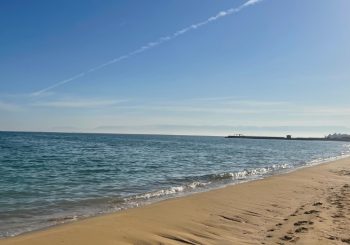
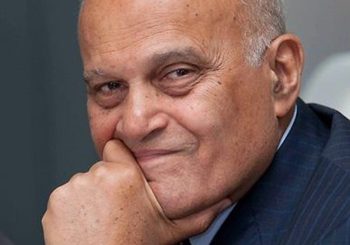
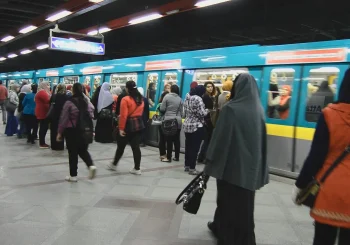
Comments (25)
[…] like the rest of Egypt’s historic sites, Khan el-Khalili has faced detrimental changes since the revolution. The numbers of tourists in the […]
This is heartbreaking. I studied Egyptology at AUC and met my husband there. We left shortly before the revolution and have not had a chance to visit. Thank you for sharing your experiences. I know there are lots of other horrible things going on in the country but it is a shame that things have deteriorated to such and extent here as well. I am glad to hear that the Mena House is still such a nice place though. I stayed there when I first arrived in Egypt and count many of its employes as friends and have wondered about them since Jan 25.
It is interesting: I know a lot of foreigners who have visited Egypt many times – whether for work and study or simply for tourism – and I have come to the conclusion that foreigners care more about such precious landmarks than Egyptians do. If only Egyptians started caring half as much, then maybe this deterioration would not impact our monuments.
I hope your next visit to the Pyramids (if that is planned) is much better than mine was.